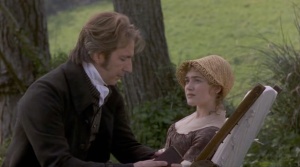I confess I haven’t done very much writing this week. This is partly because I’ve just finished the first draft of one project and am now leaving it to settle for a bit before coming back to it and re-reading it with what I hope will be a fresh perspective.
This can be a bracing, even shocking experience. It takes a certain period of time to be able to read something objectively, ie with enough distance to realise that your lovingly crafted masterpiece is in fact pretty much a load of old cobblers. With any luck, there’ll be a few nice turns of phrase, a couple of decent lines of dialogue that really do reflect what you were trying to achieve in the first place and which give you enough to build on as you start on The Rewrite.
It’s an accepted truth among the screenwriting fraternity that the first draft of anything will be crap. Not being much of a prose writer, I don’t know to what extent this holds true for novels and short stories but it’s certainly the case for screenplays. It’s quite common even for well-established writers to find that it isn’t until they’re on the fourth or fifth draft that they really begin to get a proper sense of the story they’re trying to tell.
There are innumerable tales of scripts that were re-written again and again – literally dozens of times – as their creators did battle with the detailed specifics of character, theme and plot in order to create a story that would really resonate on the big screen.
Emma Thomson spent five years working on the screenplay for Sense and Sensibility and is alleged – though I can’t vouch for it – to have written in excess of ninety drafts before shooting began.
Mind you, it’s brilliant and manages to remain true to the essence of Jane Austen’s original novel while making it relevant and true for a modern audience too. It quite deservedly won an Oscar.
Real writing is damned hard work and there’s no getting away from that fact. I was at an event for TV writers yesterday during which there was a panel discussion with Toby Whithouse, who wrote Being Human and No Angels and Richard Warlow, who created Ripper Street and Mistresses. Both spoke about the years that it took to get these projects off the ground.
Asked about his writing methods on Being Human, Toby Whithouse talked eloquently about the pages and pages of preparatory material he produced – every detail of each character and relationship, documents scoping out the entire world of the story and examining every possible permutation of the plot. This is what it took for him to feel that he knew story well enough to start actually writing the script. It took months and months and no-one but him ever saw or read these notes.
As an aside, it was interesting to hear that the original idea for the series was that it was about an ordinary flatshare, and it took several drafts for Whithouse to realise that none of the protagonists were alive!
Perhaps the biggest irony of writing for the screen is the amount of sheer effort it takes to produce what? A couple of hours of idle entertainment on a Saturday night. It’s all too easy to dismiss out of hand what may have amounted to years of someone’s life, something they’ve sweated blood to create. I don’t for one minute pretend that all films are good, but I do try to give proper thought and consideration to what the writer and director were trying to achieve, even if they haven’t completely succeeded. As a fellow sufferer, I owe them that at least.


